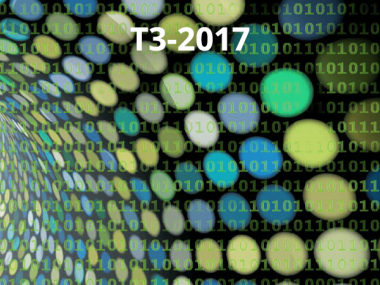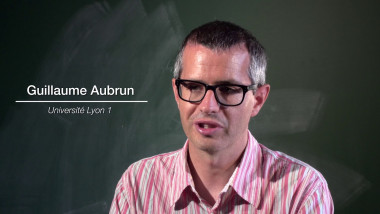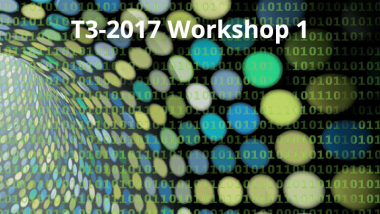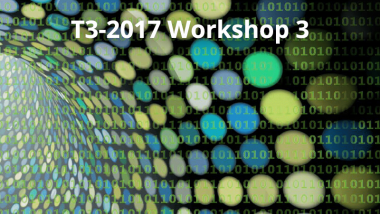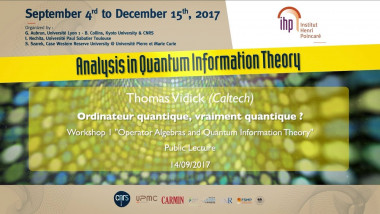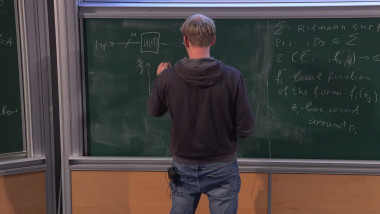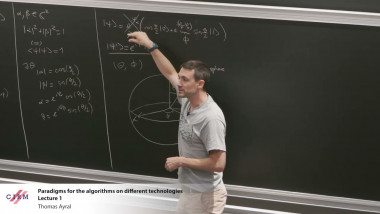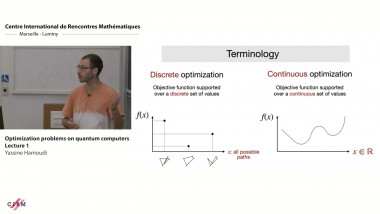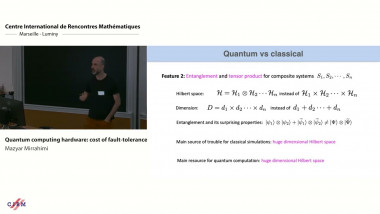Collection 2017 - T3 - Analysis in quantum information theory
Quantum Information Theory (QIT) is a rapidly developing field whose significance ranges from fundamental issues in the foundations of quantum theory to new state-of-the-art methods for secure transmission of information. The potential for powerful new methods of computation, data transmission and encryption has led to new perspectives on such entire fields as computational complexity and Shannon information theory. Work in this highly interdisciplinary and competitive area overlaps many different fields of mathematics and has widespread applications in fields like computer science and physics. The main feature of this program will be a systematic exploration of QIT via analysis (considered in a broad sense). More precisely, we will concentrate on the role of operator structures and of probabilistic tools in QIT. The operator structures of importance in QIT are in particular operator algebras, operator spaces, and operator systems. Conversely, the impact of quantum information science on these fields has been significant in the last few years. Operator algebras have a long history as a framework for quantum theory. In QIT, interactions with the environment play a major role, corresponding to the auxiliary spaces which are an essential component of operator spaces and systems. The probabilistic tools include concentration of measure, random matrix theory and large deviation theory. A related area which has probabilistic flavor, but deserves to be mentioned separately, is the asymptotic geometry of high dimensional convex bodies, which grew out of geometric functional analysis and classical convexity. At the intersection of operator algebras and (quantum) probability, there is also free probability theory, which was developed by Voiculescu in the 1990s with the aim of classifying II1 factors in von Neumann algebra theory. Free probability also turns out to play a major role in QIT, a fact which will be emphasized during the program.
Organizer(s) Aubrun, Guillaume ; Collins, Benoit ; Nechita, Ion ; Szarek, Stanislaw
Date(s) 04/09/2017 - 15/12/2017
linked URL https://web.archive.org/web/20201010200042/https://sites.google.com/site/analysisqit2017/home











